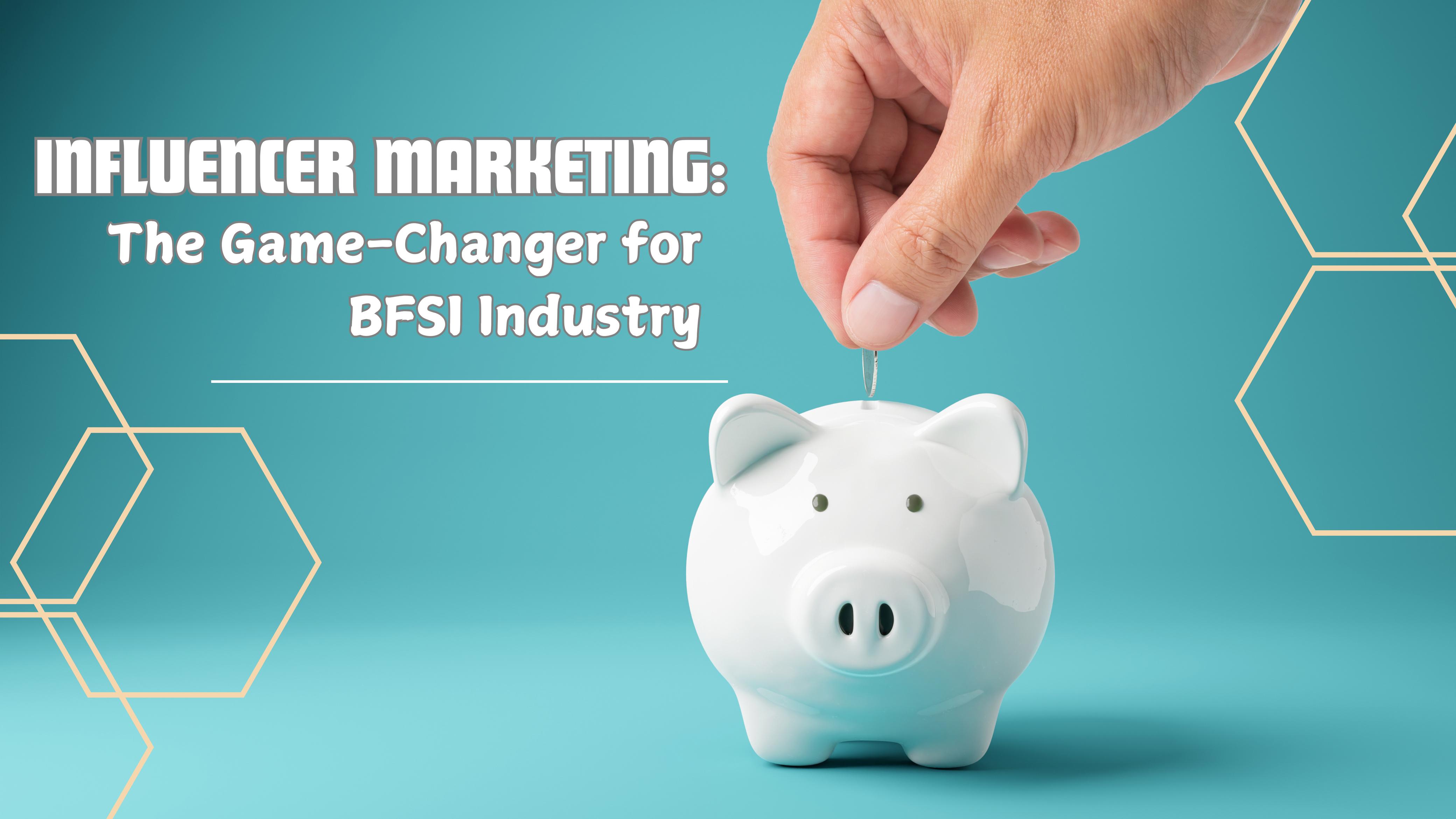The Rise of AI-Generated Influencers: Threat or Opportunity for Brands?
26 January 2023

The banking, financial services, and insurance (BFSI) sector includes a broad spectrum of businesses and organizations that offer financial services to clients. This covers financial institutions such as banks, credit card companies, insurance companies, investment companies, and others.
Influencer marketing has evolved into a powerful tool for the BFSI (Banking, Financial Services, and Insurance) industry, especially in the digital age. During the lockdown, the shift to online platforms accelerated, and banks realized the need to connect with their digitally active audience in innovative ways. Traditionally, influencer marketing was reserved for lifestyle brands, but now financial institutions are using it to stay relevant, particularly among millennials who are becoming key financial decision-makers. Millennials tend to distrust traditional advertising and prefer authentic, relatable content, making influencers the ideal bridge between banks and customers. Financial topics can be complex, and influencers who specialize in personal finance or entrepreneurship can simplify these discussions, making them more engaging and accessible. By collaborating with influencers, banks can highlight their products, services, and values in a way that resonates with their target audience. Whether it's promoting financial literacy or showcasing innovative banking solutions, influencers can help interpret finance for a younger, more skeptical generation. As screen time increases, so does the opportunity for banks to meet customers where they spend most of their time—on social media. This trend opens up numerous possibilities for banks to explore new ways of engagement through influencer partnerships.
Why do banks need Influencer Marketing?
Influencer marketing by banks is nothing new, yet many people are still unsure of the purpose of social media marketing for financial services. The following justifies the need and value of influencer marketing in the BFSI.
1. The Nature of Connecting to a Digital Audience: Since the majority of the consumers spent a greater amount of time on social media, primarily millennials and Gen Z, banks do require influencer marketing to reach that digitally active demographic segment even more effectively.
2. Building Credibility and Trust: Influencer marketing contrasts with traditional marketing in that members of the audience get to know an influencer on a personal level. Influencers in finance help banks build trust by giving relatable, real-life advice which their audience can more easily understand and absorb.
3. Simplification of Complex Financial Concepts: Banking and financial in nature are thought to be a bit complex. Influencers, especially those working within the domain of personal finance, can make complex subjects like investment, saving, or loans much easier to learn and understand.
4. Better Brand Awareness: Influencer partnerships extend the bank's reach into either niche or wider audiences, depending on the influencer reach. This helps banks promote their new products and services, or initiatives in a more interactive way.
5. Appealing to New Age Consumers: Millennials and Gen Z consume more personalized and peer-reviewed content over traditional ads. Influencers help communicate the bank's offerings in a format that is appealing to these younger generations.
6. Adapt to Trends in Marketing: As social media continues to reign supreme as the most dominant communication channel, influencer marketing is a necessity if the bank wants to continue competing fiercely in a fast-changing digital landscape.
How to develop a successful Influencer Marketing Plan for BFSI?
To create an effective influencer marketing strategy for the BFSI sector, which is essentially inclusive of banking, insurance, and other financial services, follow the next steps:
1. Define Clear Objectives: First, identify what your campaign objectives are. Is it brand awareness, customer engagement, or the promotion of some financial product? Further, align your influencer strategy to measurable KPIs like lead generation, app downloads, or social media engagement.
2. Choose the right influencers: BFSI is a highly regulated and trust-driven industry. The collaboration should be done with credible, well-informed influencers with a following that relies on their insight into finance. Microinfluencers are a nice niche of experts in the areas of finance and can be much more authentic but better engaged.
3. Know your audience: Know your audience, who they are, whether millennials looking for investment tips or small and medium-scale enterprises considering business loans. As an influencer, you make sure your content caters to the needs and concerns of your audience about money matters.
4. Compliance and Regulations: BFSI is one of the most regulated sectors. Ensure that influencer content abides by legal compliances related to disclosures around financial advice and advertisement transparency.
5. Measure Performance: Follow through on the performance of the campaign using analytics tools. Observe engagement rates, click-through rates, conversions, and other key metrics that indicate success and allow for future improvements. A well-curated influencer marketing plan helps your brand gain trust, create engagement, and grow your financial brand.
What content techniques may be used in BFSI for influencer marketing?
Influencer marketing has unique potential in the Banking, Financial Services, and Insurance (BFSI) sector, offering a more personal way to engage with audiences. By partnering with trusted financial influencers, companies can share educational content that simplifies complex topics and fosters financial literacy, building a strong foundation of trust and credibility. Interactive formats like webinars, live Q&A sessions, and explainer videos can transform seemingly dry information into engaging discussions, helping to demystify financial services. Personalized storytelling, such as influencers sharing their experiences with a service, makes financial products feel more approachable and relatable to everyday consumers. Additionally, special promotions or campaigns led by influencers can attract attention and encourage audience participation, expanding a brand’s reach. However, due to the BFSI sector’s strict regulatory environment, transparency and adherence to guidelines are essential. Properly managed influencer partnerships can thus enhance brand credibility, creating impactful connections without compromising on authenticity.
Experience the power of influencer marketing with Influir Media, your trusted partner for innovative campaigns and reliable industry news in Delhi NCR.